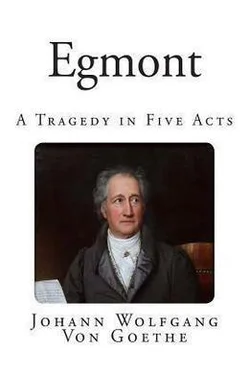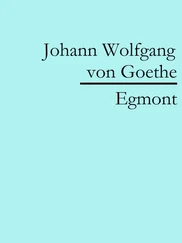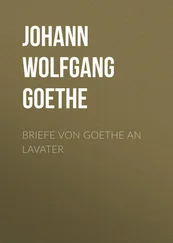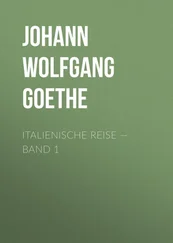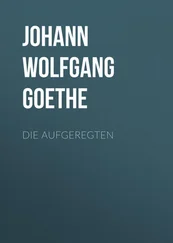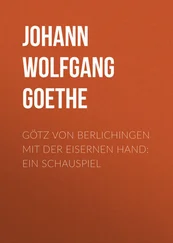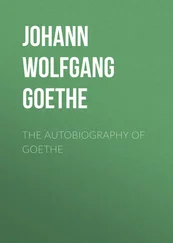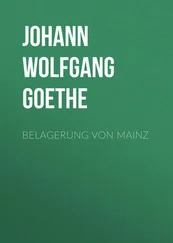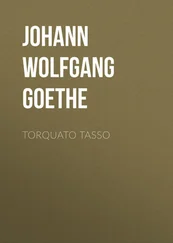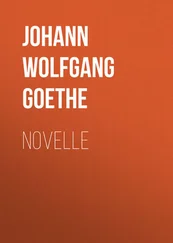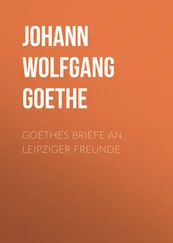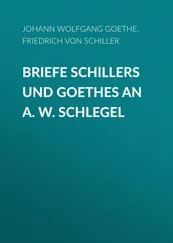Johann von Goethe - Egmont
Здесь есть возможность читать онлайн «Johann von Goethe - Egmont» весь текст электронной книги совершенно бесплатно (целиком полную версию без сокращений). В некоторых случаях можно слушать аудио, скачать через торрент в формате fb2 и присутствует краткое содержание. Год выпуска: 2015, Издательство: epubBooks Classics, Жанр: Драматургия, на английском языке. Описание произведения, (предисловие) а так же отзывы посетителей доступны на портале библиотеки ЛибКат.
- Название:Egmont
- Автор:
- Издательство:epubBooks Classics
- Жанр:
- Год:2015
- ISBN:нет данных
- Рейтинг книги:4 / 5. Голосов: 1
-
Избранное:Добавить в избранное
- Отзывы:
-
Ваша оценка:
- 80
- 1
- 2
- 3
- 4
- 5
Egmont: краткое содержание, описание и аннотация
Предлагаем к чтению аннотацию, описание, краткое содержание или предисловие (зависит от того, что написал сам автор книги «Egmont»). Если вы не нашли необходимую информацию о книге — напишите в комментариях, мы постараемся отыскать её.
Egmont — читать онлайн бесплатно полную книгу (весь текст) целиком
Ниже представлен текст книги, разбитый по страницам. Система сохранения места последней прочитанной страницы, позволяет с удобством читать онлайн бесплатно книгу «Egmont», без необходимости каждый раз заново искать на чём Вы остановились. Поставьте закладку, и сможете в любой момент перейти на страницу, на которой закончили чтение.
Интервал:
Закладка:
Ferdinand. I listen without interrupting thee! Thy reproaches fall like blows upon a helmet. I feel the shock, but I am armed. They strike, they wound me not; I am sensible only to the anguish that lacerates my heart. Alas! Alas! Have I lived to witness such a scene? Am I sent hither to behold a spectacle like this?
Egmont. Dost thou break out into lamentations? What moves, what agitates thee thus? Is it a late remorse at having lent thyself to this infamous conspiracy? Thou art so young, thy exterior is so prepossessing? Thy demeanour towards me was so friendly, so unreserved! So long as I beheld thee, I was reconciled with thy father; and crafty, ay, more crafty than he, thou hast lured me into the toils. Thou art the wretch! The monster! Who so confides in him, does so at his own peril; but who could apprehend danger in trusting thee? Go! Go! rob me not of the few moments that are left me! Go, that I may collect my thoughts, the world forget, and first of all thyself!
Ferdinand. What can I say? I stand and gaze on thee, yet see thee not; I am scarcely conscious of my own existence. Shall I seek to excuse myself? Shall I assure thee that it was not till the last moment that I was made aware of my father's intentions? That I acted as a constrained, a passive instrument of his will? What signifies now the opinion thou mayst entertain of me? Thou art lost; and I, miserable wretch, stand here only to assure thee of it, only to lament thy doom.
Egmont. What strange voice, what unexpected consolation comes thus to cheer my passage to the grave? Thou, the son of my first, of almost my only enemy, thou dost pity me, thou art not associated with my murderers? Speak! In what light must I regard thee?
Ferdinand. Cruel father! Yes, I recognize thy nature in this command. Thou didst know my heart, my disposition, which thou hast so often censured as the inheritance of a tender–hearted Mother. To mould me into thine own likeness thou hast sent me hither. Thou dost compel me to behold this man on the verge of the yawning grave, in the grasp of an arbitrary doom, that I may experience the profoundest anguish; that thus, rendered callous to every fate, I may henceforth meet every event with a heart unmoved.
Egmont. I am amazed! Be calm! Act, speak like a man.
Ferdinand. Oh, that I were a woman! That they might say—what moves, what agitates thee? Tell me of a greater, a more monstrous crime, make me the spectator of a more direful deed; I will thank thee, I will say: this was nothing.
Egmont. Thou dost forget thyself. Consider where thou art!
Ferdinand. Let this passion rage, let me give vent to my anguish! I will not seem composed when my whole inner being is convulsed. Thee must I behold here? Thee? It is horrible! Thou understandest me not! How shouldst thou understand me? Egmont! Egmont!
(Falling on his neck.)
Egmont. Explain this mystery.
Ferdinand. It is no mystery.
Egmont. How can the fate of a mere stranger thus deeply move thee?
Ferdinand. Not a stranger! Thou art no stranger to me. Thy name it was that, even from my boyhood, shone before me like a star in heaven! How often have I made inquiries concerning thee, and listened to the story of thy deeds! The youth is the hope of the boy, the man of the youth. Thus didst thou walk before me, ever before me; I saw thee without envy, and followed after, step by step; at length I hoped to see thee—I saw thee, and my heart flew to thy embrace. I had destined thee for myself, and when I beheld thee, I made choice of thee anew. I hoped now to know thee, to live with thee, to be thy friend,—thy—'tis over now and I see thee here!
Egmont. My friend, if it can be any comfort to thee, be assured that the very moment we met my heart was drawn towards thee. Now listen! Let us exchange a few quiet words. Tell me: is it the stern, the settled purpose of thy father to take my life?
Ferdinand. It is.
Egmont. This sentence is not a mere empty scarecrow, designed to terrify me, to punish me through fear and intimidation, to humiliate me, that he may then raise me again by the royal favour?
Ferdinand. Alas, no! At first I flattered myself with this delusive hope; and even then my heart was filled with grief and anguish to behold thee thus. Thy doom is real! Is certain! No, I cannot command myself. Who will counsel, who will aid me, to meet the inevitable?
Egmont. Hearken then to me! If thy heart is impelled so powerfully in my favour, if thou dost abhor the tyranny that holds me fettered, then deliver me! The moments are precious. Thou art the son of the all–powerful, and thou hast power thyself. Let us fly! I know the roads; the means of effecting our escape cannot be unknown to thee. These walls, a few short miles, alone separate me from my friends. Loose these fetters, conduct me to them; be ours. The king, on some future day, will doubtless thank my deliverer. Now he is taken by surprise, or perchance he is ignorant of the whole proceeding. Thy father ventures on this daring step, and majesty, though horror–struck at the deed, must needs sanction the irrevocable. Thou dost deliberate? Oh, contrive for me the way to freedom! Speak; nourish hope in a living soul.
Ferdinand. Cease! Oh, cease! Every word deepens my despair. There is here no outlet, no counsel, no escape.—'Tis this thought that tortures me, that seizes my heart, and rends it as with talons. I have myself spread the net; I know its firm, inextricable knots; I know that every avenue is barred alike to courage and to stratagem. I feel that I too, like thyself, like all the rest, am fettered. Think'st thou that I should give way to lamentation if any means of safety remained untried? I have thrown myself at his feet, remonstrated, implored. He has sent me hither, in order to blast in this fatal moment, every remnant of joy and happiness that yet survived within my heart.
Egmont. And is there no deliverance?
Ferdinand. None!
Egmont (stamping his foot). No deliverance!–Sweet life! Sweet, pleasant habitude of existence and of activity! from thee must I part! So calmly part! Not in the tumult of battle, amid the din of arms, the excitement of the fray, dost thou send me a hasty farewell; thine is no hurried leave; thou dost not abridge the moment of separation. Once more let me clasp thy hand, gaze once more into thine eyes, feel with keen emotion, thy beauty and thy worth, then resolutely tear myself away, and say;—depart!
Ferdinand. Must I stand by, and look passively on; unable to save thee, or to give thee aid! What voice avails for lamentation! What heart but must break under the pressure of such anguish?
Egmont. Be calm!
Ferdinand. Thou canst be calm, thou canst renounce, led on by necessity, thou canst advance to the direful struggle, with the courage of a hero. What can I do? What ought I to do? Thou dost conquer thyself and us; thou art the victor; I survive both myself and thee. I have lost my light at the banquet, my banner on the field. The future lies before me, dark, desolate, perplexed.
Egmont. Young friend, whom by a strange fatality, at the same moment, I both win and lose, who dost feel for me, who dost suffer for me the agonies of death,—look on me;—thou wilt not lose me. If my life was a mirror in which thou didst love to contemplate thyself, so be also my death. Men are not together only when in each other's presence;—the distant, the departed, also live for us. I shall live for thee, and for myself I have lived long enough. I have enjoyed each day; each day, I have performed, with prompt activity, the duties enjoined by my conscience. Now my life ends, as it might have ended, long, long, ago, on the sands of Gravelines. I shall cease to live; but I have lived. My friend, follow in my steps, lead a cheerful and a joyous life, and dread not the approach of death.
Ferdinand. Thou shouldst have saved thyself for us, thou couldst have saved thyself. Thou art the cause of thine own destruction. Often have I listened when able men discoursed concerning thee; foes and friends, they would dispute long as to thy worth; but on one point they were agreed, none ventured to deny, every one confessed, that thou wert treading a dangerous path. How often have I longed to warn thee! Hadst thou then no friends?
Читать дальшеИнтервал:
Закладка:
Похожие книги на «Egmont»
Представляем Вашему вниманию похожие книги на «Egmont» списком для выбора. Мы отобрали схожую по названию и смыслу литературу в надежде предоставить читателям больше вариантов отыскать новые, интересные, ещё непрочитанные произведения.
Обсуждение, отзывы о книге «Egmont» и просто собственные мнения читателей. Оставьте ваши комментарии, напишите, что Вы думаете о произведении, его смысле или главных героях. Укажите что конкретно понравилось, а что нет, и почему Вы так считаете.
